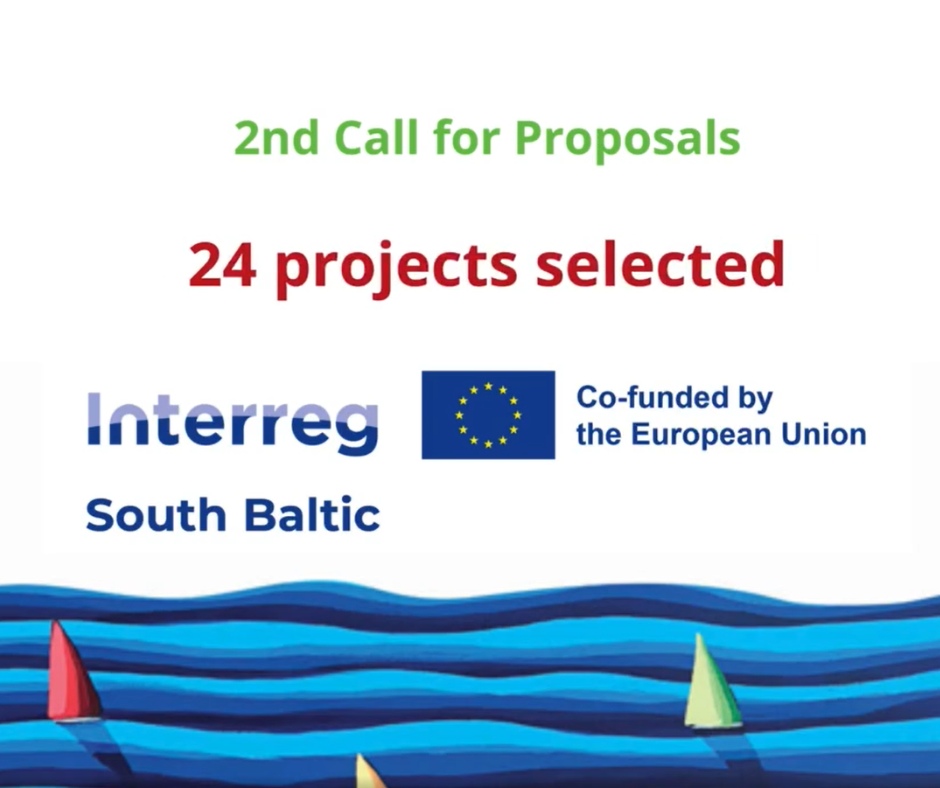We are pleased to announce that the Monitoring Committee of the Interreg South Baltic Programme has approved the projects selected for funding, including the project ‘Building Engagement to Accelerate Clean Energy Transitions in the South Baltic – BALTICBEAT’. The project leader is the University of Gdansk. The project consortium consists of: Pomerania Development Agency (Poland), Roskilde University (Denmark), TERGO company (Poland), EUCC Baltic Office (Lithuania), Energy Communities Denmark (Denmark) and Krinova Incubator & Science Park (Sweden).
The aim of the BALTICBEAT project is to prepare tools to support local government units, local communities and small and medium-sized enterprises in the energy transition in the South Baltic region. Among other things, stakeholders will have the opportunity to benefit from the expert knowledge of University of Gdansk scientists representing various scientific disciplines.
Project activities include:
- quantitative and qualitative surveys and analysis of the data found to identify the expert needs of local government units, small and medium-sized enterprises and local communities;
- preparation of a database of experts – representatives of institutions forming the project consortium;
- construction of a communication platform between experts and those requesting expert support;
- developing a package of cross-border advisory, expert and dedicated training services to support the use of green energy in local communities.
These tools will be developed on the basis of cross-border cooperation with project partners. In addition to the University of Gdansk, the Pomerania Development Agency is actively involved in the project, and the SME sector is represented by TERGO, a company specialising in carbon footprint calculations. Foreign partners of the project are the Danish University of Roskilde and NGOs: EUCC Baltic Office (Lithuania), Energy Communities Denmark (Denmark) and Krinova Incubator & Science Park (Sweden). They will be supported by associated partners Pszczółki Municipality (Poland), Kristianstad Municipality (Sweden), Neringa Municipality (Lithuania), the Association of Maritime Cities and Municipalities and the Pomeranian Science and Technology Park in Gdynia.
The project manager is Sylwia Mrozowska, PhD, DSc, Prof. UG, the coordinating manager will be Jolanta Mrozek – Kwiatkowska, and the expert coordinators are Anna Machnikowska, PhD, DSc, Prof. UG and Krzysztof Szczepaniak, PhD.
“The University of Gdansk, as the largest university in northern Poland with almost one thousand eight hundred academics representing over twenty scientific disciplines, will support local government units and small and medium-sized enterprises in the energy transition process,” announces Sylwia Mrozowska, PhD, DSc, Professor UG, Project Manager, Vice-Rector for Cooperation and Development, University of Gdansk. “As part of the project, research will be carried out into the needs of local government units and enterprises in terms of expert support. Based on the results of the research, training courses, e-learning courses, workshops and a database of experts will be prepared, including staff from the University of Gdansk, the University of Roskilde and specialists from all partner institutions of the project.“
The idea behind BALTICBEAT is to increase local energy self-sufficiency, reduce operating costs and increase energy security. The realisation of these intentions also represents an important step towards reducing dependence on external energy suppliers and reducing the carbon footprint.
“The project takes on additional significance in the context of the current energy situation in the Baltic region, particularly in Poland, which is facing changes by reducing the share of coal energy in the energy mix in favour of renewable sources,” points out Krzysztof Szczepaniak, PhD, Director of the Centre for Sustainable Development.
“The BALTICBEAT project is scheduled to run for 30 months,” says Jolanta Mrozek-Kwiatkowska, project manager of the Centre for Sustainable Development UG. “Substantive tasks will include a capacity-building programme to support local communities in energy transition processes, analysis of existing policies and strategies, development of stakeholder engagement scenarios and preparation of recommendations for local strategies on energy transition solutions and education and awareness-raising tools.”
The aim of the Interreg South Baltic Programme 2021-2027 is to build an innovative, sustainable, attractive and active South Baltic by working towards a ‘blue’ and ‘green’ future. The programme applies the principle of partnership. This means that projects “must be implemented in an international partnership of actors coming from at least 2 programme member states and must benefit the border area and its inhabitants”. More.
We are pleased to announce that, in addition to BALTICBEAT, the winning projects include two consortia in which UG is a partner: N-B-Well, led by Klaipeda University, and BALTWRECK, led by the Robert Szewalski Institute of Fluid-Flow Machinery of the Polish Academy of Sciences.
Photo on the slider on the homepage: Łukasz Bień, UG


